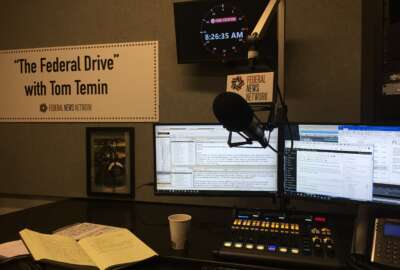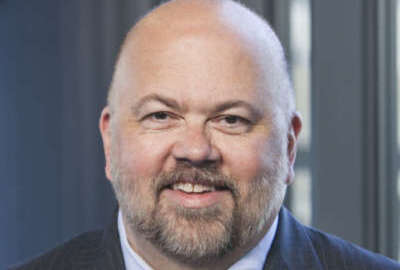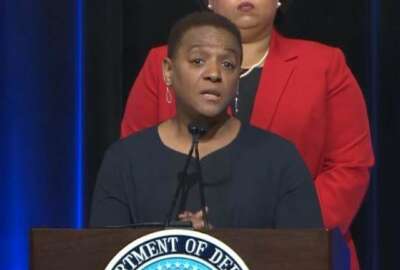
Are telework protocols coming too late?
Too little and too late. That's what Bob Tobias, a long time expert on the federal workplace, sees in the administration's approach so far to telework in the virus...
Best listening experience is on Chrome, Firefox or Safari. Subscribe to Federal Drive’s daily audio interviews on Apple Podcasts or PodcastOne.
Too little and too late. That’s what my next guest, a long time expert on the federal workplace, sees in the administration’s approach so far to telework in the virus scare. Bob Tobias is a professor in the Key Executive Leadership program at American University. He joined Federal Drive with Tom Temin to discuss further.
Interview transcript:
Tom Temin: Bob, OPM did issue guidance last week and told agencies to basically open up telework policies. What’s your sense of how clear the communication really is and how federal workforce as a whole can really understand what’s going on?
Bob Tobias: And you point out, Tom, OPM did issue something because something had to be issued. But the question is whether something will get the job done, which is to create an opportunity for federal employees to continue to effectively carry out the public’s business. And I think the answer to that is no. And the reason is, for a long time, the continuity of operations should have included a telework policy, but agencies haven’t done it in OMB and OPM haven’t enforced that requirement. So the only agencies I believe who are fully prepared to have an effective workforce are those who have over the years, through collective bargaining, created telework policies that have worked both in terms of creating an infrastructure for performance and a methodology for evaluating the performance of those who are performing telework.
Tom Temin: Because you do need a certain amount of technical infrastructure to make sure that your networks and your servers andcall can hold up to teleworking, which is a different mix of technology than you would have for people in the office.So I think that was one of the concerns. And I guess it’s surprising that that hadn’t been tested much sooner.
Bob Tobias: Correct. I mean, the infrastructure has to be, you have to have secure lines. But more importantly, have to have access to the data that you need to work at home. And if that data isn’t available than your at home taking a nap as supposed to at home, doing the work that could be done were the infrastructure in place.
Tom Temin: That’s right, because you can check email. People have been doing that since the BlackBerry, and you can have conference calls, but I think you get to the heart of it. The question is, what about those mission critical data bases and the applications on them even in this era of cloud. A lot of that is still not in the cloud and therefore difficult to access by remote means.
Bob Tobias: Correct. So if I’m an analyst, I need dated, analyzed. If I’m writing a report, I need access to the data to do a report. So if that’s my work and that’s an awful lot of the work of federal employees and I don’t have access to the data, I can’t do my work.
Tom Temin: I remember in the traffic worry era, this might have been during the Bush administration or even Clinton. The GSA established telework centers that were large offices for no particular agency. But people could hotel there, and they were on the peripherals of the cities so that people didn’t have to commute into the inner cities where the office is traditionally were. That effort never really gained a lot of traction, and I think those have all been shut down by GSA. And I guess that really wouldn’t be a good answer if the issue of Congregation of People is the problem.
Bob Tobias: Exactly. I mean, if I’m gonna congregate in a peripheral area or I’m going to congregate downtown. It’s the same thing. The whole idea is to not congregate. Which brings up this whole issue of effective telework. And I think perfect example of that is the SEC. They’ve had a collective bargaining agreement in effect for telework since 2002. So when they had someone who contracted the coronavirus, they immediately shut down the headquarters and everyone went home and is able to do their work.
Tom Temin: And interestingly, USCIS launched a telework plan and they specifically said it was because of the result of collective bargaining and not because of the coronavirus, although it coincided with the height of the coronavirus.
Bob Tobias: Exactly. So in order to make telework effective, you have to have collaboration. People have to problem solve. It isn’t just, you can’t just say I’m gonna have a telework policy, and miraculously, it appears there The devil is always in the details, and the people to do that kind of work are unions and management working collaboratively.
Tom Temin: What about those that have to contact the public, notably the TSA officers.
And I think at the time of middle of last week, two or three of them had been identified as having coronavirus. They really can’t telework. You’ve got to be in the airport screening, light as the traffic might be these days. And then people that man Social Security Offices where people come in for appointments. This kind of thing. What’s a good policy there?Bob Tobias: Well, TSA, the people who are at the borders, the customs border protection folks, people in SSA. In order to do their work, they have to be protected as well. And so far, there’s a lot of discontent over the lack of masks, the lack of a clear policy about how to protect themselves from the traveling public.
Tom Temin: Yeah, because there’s the psychological effect of every federal person you might encounter head to toe in hazmat suits or masks. I guess it sends an odd signal, but yet on the other hand, it might be necessary.
Bob Tobias: Well, I’m certain that if I were a TSA officer, I would want the maximum lot of protection that I could be provided in order that I not get sick and die, and so that the traveling public would look at me and say, you don’t look so good would be irrelevant to me. Okay, I don’t look so good. I’m doing my job and I’m safe. It seems to me that that should be the goal.
Tom Temin: That’s one of the issues I think the union’s brought up last week is that there is no seeming coordination or policy with respect to issuing that type of protective gear. And the agency managers don’t seem to be talking about it with rank and file employees, whether unions or otherwise.
Bob Tobias: That’s correct. That’s correct. And we’re living in a time of incredible uncertainty. Things are changing so fast, and so we’re more and more uncertain. And the most uncertain is about my personal safety. That means if I’m a basketball player or if I’m someone who say TSA officer working with the public agencies need to be focusing on that.
Tom Temin: Bob Tobias is a professor at the Key Executive Leadership Program at American University. Let’s hope things improve, but thanks for being here.
Bob Tobias: Thank you very much time for having me.
Copyright © 2025 Federal News Network. All rights reserved. This website is not intended for users located within the European Economic Area.
Related Stories




